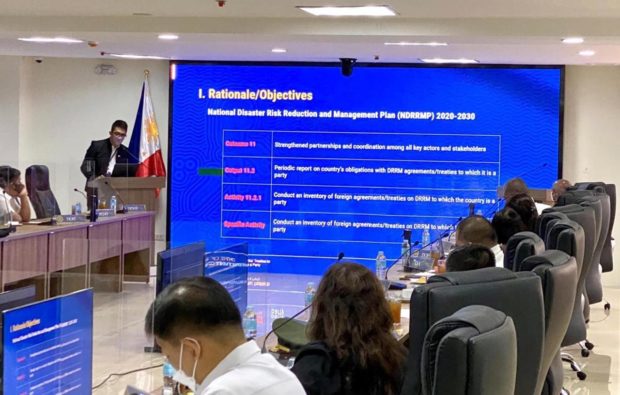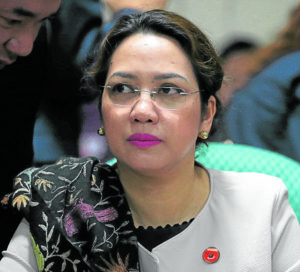
Office of the Civilian Security Principal Assistant Mark Anthony G. Articulo presents before the NDRRMC Full Council the database of Foreign Agreements and Treaties to which the Philippines is included. (Photo from DFA website)
MANILA, Philippines — The Department of Foreign Affairs (DFA) launched Thursday a database on foreign agreements and treaties related to disaster risk reduction and management (DRRM), to which the Philippines is a party.
The launch was held during the National Disaster Resilience Month’s Resilience Hour on Preparedness Webinar led by the agency’s Office of Civilian Security.
“The Database aims to provide a consolidated reference for generating periodic reports on its compliance with various DRRM agreements and treaties, in order to help strengthen partnerships and coordination among all key actors and stakeholders in disaster risk reduction and management,” the DFA said in a statement.
According to the DFA, the database includes multilateral instruments such as the Paris Agreement on climate change and bilateral treaties with countries like Vietnam, Norway, and Thailand.
“Each entry provides a summary of the key points of the instrument and is linked to a copy of the document,” the DFA said.
The DFA said that the database is linked with Activity 11.2.1, Output 11.2, and Outcome 11 of the National Disaster Risk Reduction and Management Plan 2020-2030, calling for the “conduct of an inventory of foreign agreements and treaties on DRRM.”
Meanwhile, National Disaster Risk Reduction and Management Council (NDRRMC) Chairman Delfin Lorenzana commended the DFA, saying that the initiative “will benefit NDRRMC as a whole.” — Iliana Padigos, INQUIRER.net intern


